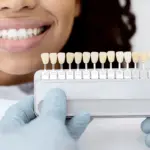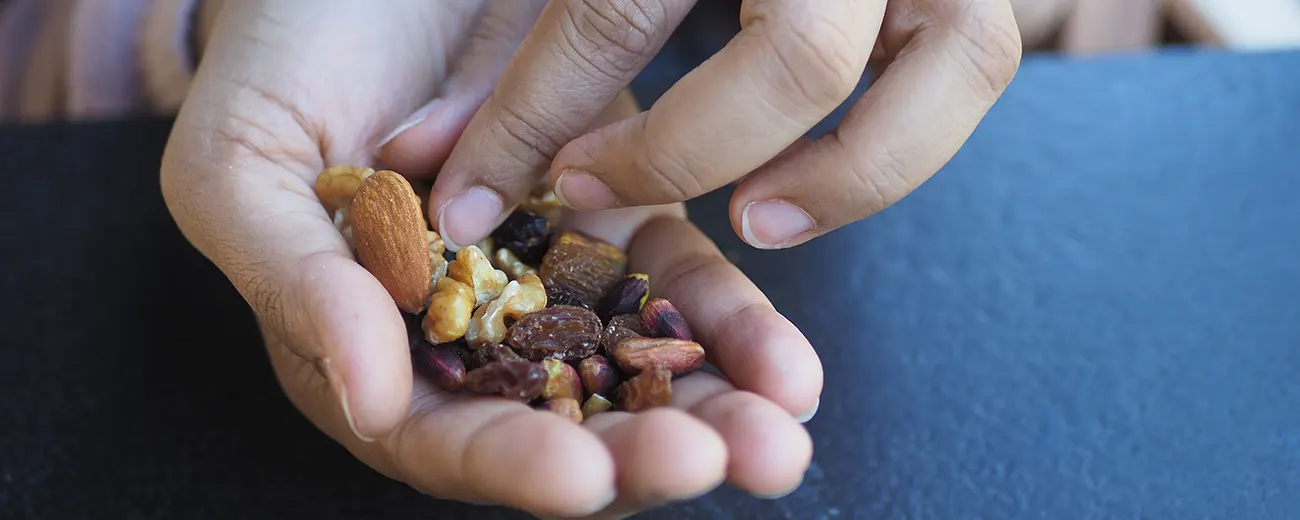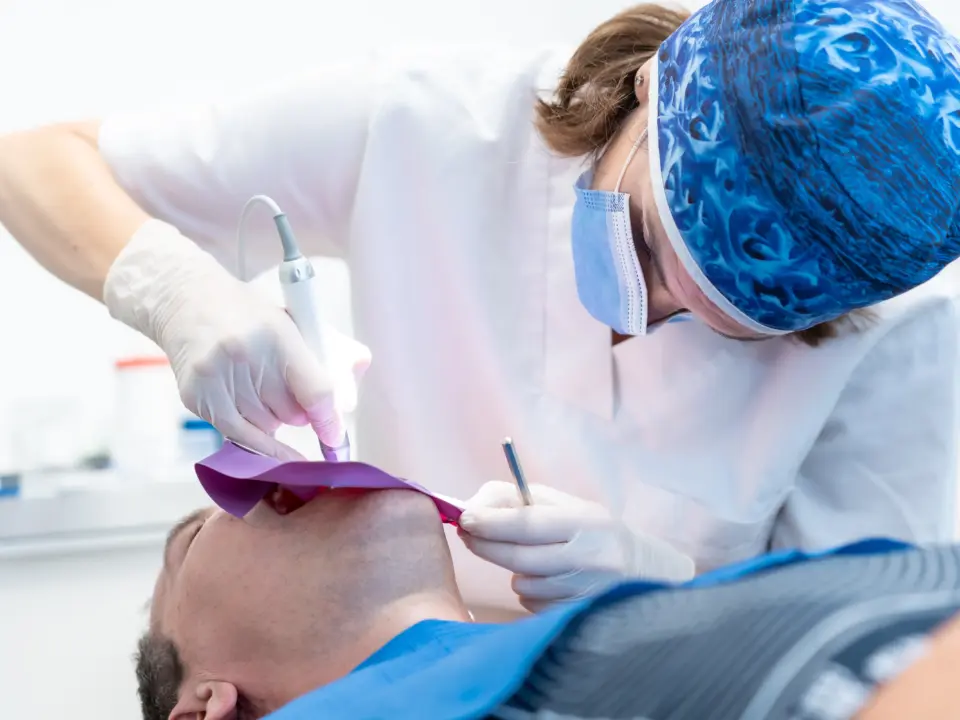
How to Get Whiter Teeth: Veneers vs. Teeth Whitening
August 22, 2025Fluoride Toothpaste: What You Need to Know for a Healthy Smile
September 26, 2025Most of us know sugar can hurt our teeth, but diet affects your smile in more ways than that. What you eat and drink every day can either protect your teeth or slowly wear them down. Foods good for teeth provide the nutrients your enamel and gums need, while other foods make it easier for bacteria in your mouth to cause problems like cavities, tooth decay, and bad breath.
If you want a healthier smile and better overall health, it helps to know which foods and drinks to enjoy more often and which to keep in moderation. Let’s break it down.
Why Food Matters for Your Dental Health
When you chew, food interacts with your teeth, gums, and saliva right away. Sugary or acidic foods feed the bacteria in your mouth, which produce acids that damage tooth enamel. On the other hand, nutrient-rich foods support strong enamel, improve saliva production, and even help clean your teeth as you eat.
It’s not only about preventing cavities either. Good nutrition helps your entire body, and that includes your dental health. Vitamins and minerals from healthy food help your teeth and gums stay strong, while poor eating habits can show up in the form of weaker enamel, inflamed gums, or chronic bad breath.
Foods Good for Teeth
Foods Good for Teeth
Leafy greens like spinach, kale, and Swiss chard are powerhouses for your smile. They are loaded with calcium, a mineral that strengthens tooth enamel, and vitamin K, which supports healthy gums. Because they are high in fibre, leafy greens also require more chewing, which naturally boosts saliva production. That extra saliva helps clean your teeth while you eat.
Dairy Products: Cheese and Yogurt
Cheese and yogurt are two of the best dairy products for your teeth. They are a natural source of calcium and protein, which protect your teeth and gums. Cheese also triggers saliva production, which helps wash away harmful bacteria and neutralize acids. Yogurt, especially plain unsweetened yogurt, contains probiotics that support both dental care and your overall health.
Crunchy Fruits and Vegetables
Apples, carrots, and celery are often called nature’s toothbrushes. Their crisp texture scrubs your teeth as you chew and increases saliva. These foods also provide vitamins and minerals that support healthy gums. Eating an apple or a carrot as a snack is a simple way to clean your teeth when you cannot brush right away.
Green and Black Teas
Both green and black teas contain compounds called polyphenols. These help fight the bacteria in your mouth that lead to cavities, gum disease, and bad breath. Tea also supports saliva flow and can be a good alternative to sugary drinks. Just avoid adding too much sugar or honey, which can cancel out the benefits.
Drinking Water
Water is one of the most important things you can drink for dental health. It rinses away food particles, reduces acidity, and helps prevent tooth decay. Fluoridated water also strengthens tooth enamel. Carrying a water bottle with you makes it easy to clean your teeth and gums throughout the day.
Nuts and Seeds
Almonds, sesame seeds, and walnuts provide calcium, phosphorus, and other minerals that protect your teeth. Their crunchy texture also encourages chewing and saliva production. A handful of nuts can make a satisfying snack that benefits your smile as well as your body.

Foods and Drinks to Limit
Sugary Drinks and Sodas
Sodas, energy drinks, and sweetened juices coat your teeth in sugar and acid. This weakens enamel and leads to cavities. Even diet sodas without sugar are acidic enough to wear away enamel. Water or unsweetened tea is always the better choice.
Sticky Candies and Dried Fruits
Caramels, gummies, and even dried fruits like raisins tend to stick to your teeth. When sugar lingers, bacteria thrive and produce more acid. If you do eat these, rinse your mouth with water and brush soon after.
Citrus and Acidic Foods
Citrus fruits, tomatoes, and pickled foods are healthy in many ways but can erode enamel if eaten in excess. Acids soften enamel, making teeth more vulnerable. Rinse with water after eating these foods and wait 20 to 30 minutes before brushing so you do not spread the acid across your enamel.
Alcohol
Alcohol dries out your mouth, which lowers saliva production. Without enough saliva, bacteria can multiply, leading to tooth decay and bad breath. Heavy drinking is also linked to gum disease. If you do drink, balance it with plenty of water.
Everyday Habits That Protect Your Teeth
Healthy food choices are just part of the picture. Pairing good nutrition with strong habits makes the biggest difference.
- Brush twice a day with fluoride toothpaste to protect enamel.
- Floss daily to remove food particles and bacteria from between your teeth.
- Rinse with water after meals to wash away acids and food debris.
- Chew sugar-free gum to encourage saliva production if you cannot brush.
- Schedule regular dental visits so your dentist can catch early signs of tooth decay or gum issues.
Putting It All Together
The foods and drinks you choose every day affect more than just your waistline. They play a direct role in your dental health too. Leafy greens, dairy products like cheese and yogurt, crunchy fruits and vegetables, green and black teas, and water are all foods good for teeth. They strengthen enamel, boost saliva production, and protect your teeth and gums from harmful bacteria.
On the flip side, limiting sugary drinks, sticky candies, highly acidic foods, and alcohol can go a long way in keeping enamel strong and preventing tooth decay. Small daily choices add up and can make a big difference in the long run.
At Knox Mountain Dentistry, we know that dental care is about more than brushing and flossing. It is about your lifestyle and what you put on your plate. If you want advice or have questions about how your diet is affecting your smile, our team is here to help. Book an appointment today and take the next step toward healthier teeth and better overall health.



